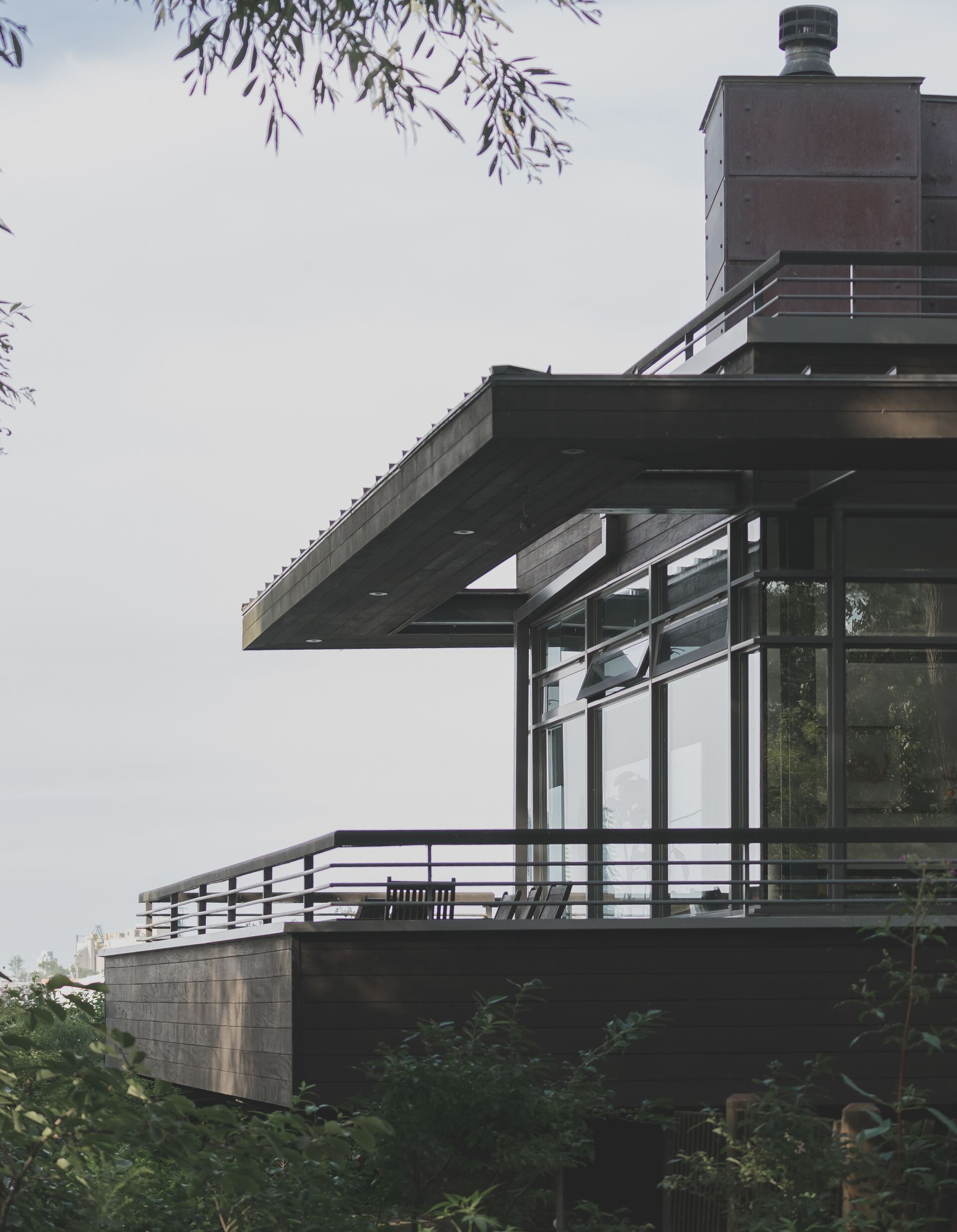Austin Texas Housing Market Crash 2024
Will Austin, TX home prices drop in 2024?
The Austin housing market has long been regarded as one of the most robust and resilient in the United States. However, According to the Zillow Home Value Index, home prices in Austin have fallen by more than 10 percent between July 2022 and April 2023. Recent indicators suggest that a downturn may be looming on the horizon.
Potentially. This surge in supply could potentially lead to longer listing periods and declining prices. Secondly, there has been a decrease in buyer demand. Affordability issues have become more prevalent as housing prices continue to rise faster than incomes. This affordability gap is deterring many potential homebuyers from entering the market, leading to reduced competition among buyers. Lastly, there has been a decline in home price appreciation rates.
While Austin's housing prices are still increasing overall, the rate of growth has slowed significantly compared to previous years. This deceleration suggests that the market may be reaching its peak and could soon experience a correction.
Austin Housing Market Bubble Is Ready to Pop?
The Austin housing market is currently a bubbling cauldron of inflated prices, frenzied buying, and a low inventory that doesn't match up with the swelling demand. Housing prices have skyrocketed to unprecedented heights, fueled by out-of-state transplants, low mortgage rates and a new flood of remote workers. However, real estate development cannot keep pace with such a surge in demand, pointing to a precarious imbalance. This bubble speaks of an extremely overvalued market, and when combined with the looming threat of rising interest rates and potential economic instability, it seems to be teetering on the brink of inevitable collapse. If history is any guide, inflated market bubbles eventually do pop, correcting the anomalies generated by speculative overdrive. The Austin housing market is no exception, poised for a readjustment as inevitable as it is potentially damaging to late entrants.
Impact Of The Crash On Homeowners And Sellers In Austin
The housing market crash in Austin, Texas had a significant impact on homeowners and sellers alike. As property values plummeted, many homeowners found themselves trapped in homes that were worth less than what they owed on their mortgages. This left them facing the daunting prospect of negative equity, making it nearly impossible for them to sell their homes without taking a substantial loss.
For those who needed to relocate due to job changes or other circumstances, the crash created a challenging situation. Homeowners had to make difficult decisions about whether to sell at a loss or wait out the market in hopes of a recovery. Many were forced into foreclosure or short sales, leading to financial distress and damaged credit scores.
The crash also affected sellers who were looking to upgrade or downsize their homes. With buyers becoming scarce and prices dropping rapidly, sellers struggled to find interested buyers willing to pay fair market value for their properties. This resulted in longer listing times and increased competition among sellers.
Overall, the housing market crash in Austin had severe consequences for homeowners and sellers alike as they grappled with diminished property values and limited options for buying or selling properties within the city.
Effects Of The Housing Market Crash On Buyers And Renters In Austin
The housing market crash in Austin, Texas had a profound impact on both buyers and renters in the city. As home prices plummeted, many buyers found themselves trapped in underwater mortgages, owing more on their homes than they were worth. This situation left them unable to sell or refinance their properties, causing financial distress and limiting their ability to move.
Renters also faced the consequences of the crash, albeit in a different way. As foreclosures increased, numerous rental properties were converted into distressed homes for sale. This reduced the availability of rental units, leading to a surge in demand and subsequently higher rental costs. Many renters struggled to find affordable housing options as landlords took advantage of the limited supply.
Moreover, the unstable market conditions made it difficult for potential buyers to secure financing for new homes or qualify for loans with favorable terms. The crash created an atmosphere of uncertainty and caution among lenders and borrowers alike.
Overall, the housing market crash in Austin disrupted both buyers' equity and renters' affordability, presenting challenges that affected individuals across different segments of the city's real estate market.
Government & Tech Interventions Aimed At Stabilizing The Austin Market
Austin's thriving tech industry, anchored by major companies like Dell Technologies and IBM, has played a significant role in attracting talented individuals from all corners of the country. This influx of highly-skilled workers has not only bolstered the local economy but also put immense pressure on the already limited housing supply.
To stimulate demand in the housing market, governments may offer tax incentives or credits for homebuyers, which can encourage purchasing activity and boost property values. These incentives might include tax breaks for first-time buyers or subsidies for low-income households.
Lastly, policymakers often work towards increasing the supply of affordable housing through zoning reforms and financial support for developers focusing on affordable units. By expanding affordable housing options, governments hope to alleviate pressures on the overall market and mitigate potential future crashes.
However, despite its strong performance in recent years, there are growing concerns about a potential housing market crash in Austin. Factors such as rising interest rates and escalating home prices have raised questions about sustainability and affordability. This subtopic will delve into the current state of the Austin housing market while exploring potential risks that could impact its stability.
Property Value in Downtown Austin will Continue to Climb?
The Austin housing market has long been regarded as one of the most robust and resilient in the United States. However, recent indicators suggest that a downturn may be looming on the horizon. Several signs point towards a potential slowdown in the Austin real estate market. Firstly, there has been a noticeable increase in inventory levels. The number of homes available for sale has risen steadily over the past few months, indicating a shift towards a buyer's market.
This surge in supply could potentially lead to longer listing periods and declining prices. Secondly, there has been a decrease in buyer demand. Affordability issues have become more prevalent as housing prices continue to rise faster than incomes. This affordability gap is deterring many potential homebuyers from entering the market, leading to reduced competition among buyers. Lastly, there has been a decline in home price appreciation rates.
While Austin's housing prices are still increasing overall, the rate of growth has slowed significantly compared to previous years. This deceleration suggests that the market may be reaching its peak and could soon experience a correction.
Why Further Interest Rate Hikes mean a Possible Austin Texas Housing Market Crash
The housing market crash in Austin, Texas was influenced by various factors that exacerbated the downturn. Firstly, the national economic recession played a significant role. As the recession deepened, unemployment rates soared and consumer confidence plummeted, leading to decreased demand for housing. Many potential homebuyers were unable to secure loans due to tightened lending standards imposed by financial institutions, further dampening demand.
Another factor contributing to the crash was the oversupply of housing units. Prior to the crash, Austin experienced a rapid increase in new construction projects as developers sought to meet the rising demand for housing. However, this resulted in an excess inventory of homes on the market when demand began to decline. The surplus supply led to a sharp decline in home prices as sellers struggled to compete with each other.
Furthermore, speculative investment practices aggravated the situation. Investors who had been purchasing properties with hopes of quick appreciation found themselves holding onto depreciating assets instead. This influx of distressed properties added further downward pressure on home prices.
These combined factors created a perfect storm that ultimately led to the housing market crash in Austin and its subsequent impact on homeowners and real estate investors alike.
What Caused the Bubble of the Austin, Texas Housing Market 2023/2024
1. Rapid Population Growth: Austin has experienced rapid population growth in recent years, driven primarily by domestic migration. A significant number of these newcomers are young professionals attracted by the city’s thriving tech industry.
2. Strong Economy & Job Market: Austin's thriving tech industry and strong job growth have also attracted residents, fueling both population and economic growth. As a result, the demand for housing has outpaced supply and led to price increases.
3. Limited Housing Supply: Austin has a limited housing supply that hasn't kept pace with demand. In many cases, there is more demand than available homes, which leads to increased home prices.
4. Investment in Real Estate: Austin has been a hot spot for real estate investors, both local and out-of-state. Many of these investors are willing to pay above asking price for properties, further driving up prices and adding to the housing market bubble.
5. Low Interest Rates: Historically low-interest rates have encouraged more people to buy homes and invest in real estate, further contributing to demand and price increases.
Known for its vibrant culture, booming job market, and stunning natural beauty, Austin has become a magnet for both young professionals and families looking to settle down. The city's rapid population growth over the past decade has fueled an unprecedented demand for housing, leading to skyrocketing prices and intense competition among buyers.
Lack of Demand is leading to Inflated Prices Bubble. The Best advice, sell early or not at all.
Predictions For The Future Of The Austin Housing Market | After The Crash
Following the housing market crash in Austin, Texas, experts foresee a gradual recovery and potential growth in the future. Although it may take some time to regain stability, several factors indicate a positive outlook.
Firstly, Austin's strong economy is expected to play a crucial role in its housing market recovery. The city's diverse industries, including technology and healthcare, are anticipated to continue attracting professionals and creating job opportunities. This sustained economic growth will likely contribute to increased demand for housing.
Secondly, Austin's reputation as an attractive place to live remains intact despite the recent downturn. The city's vibrant culture, excellent educational institutions, and quality of life are expected to draw individuals and families seeking a desirable living environment.
Additionally, experts predict that government initiatives aimed at supporting homeownership will aid in stabilizing the market. Programs offering affordable housing options and assistance for first-time homebuyers can boost demand while ensuring affordability.
While it may take time for Austin's housing market to fully recover from the crash, these factors provide hope that it will gradually regain strength and continue its upward trajectory in the future.
Steps Homeowners, Buyers, And Renters Can Take During A Housing Market Downturn In Austin
During a housing market downturn in Austin, homeowners, buyers, and renters can take several steps to navigate the challenging circumstances. Firstly, homeowners should consider refinancing their mortgages at lower interest rates to reduce monthly payments and potentially save money. They should also focus on maintaining their property's value by investing in necessary repairs and upgrades while avoiding unnecessary expenditures.
For prospective buyers, it is crucial to thoroughly research the market to identify potential investment opportunities. Buyers may find better deals during a downturn but should exercise caution and negotiate prices wisely. Additionally, they should secure pre-approved financing to enhance their bargaining power.
Renters can also benefit from a housing market downturn by negotiating lower rental rates or seeking longer lease terms for stability. They should be proactive in understanding their rights as tenants and ensure that any rent increases are justified.
Lastly, all individuals affected by the market crash must stay informed about government assistance programs or initiatives that could provide financial relief or support for housing-related issues. It is essential to seek guidance from real estate professionals who can provide expert advice based on the current economic situation in Austin.
Austin, Texas housing market is down 41% from last Mays highs. Inventory up almost 309% and pending down 22%.
— RawQuantum (@RawQuantum) January 24, 2023
Fed raises rates. Banks Stop lending then banks and corps buy up SFH. Rinse repeat pic.twitter.com/waJyDhIIkf



We Handle Every Single Aspect
Contact Us Today for Your Free 6 Month Marketing Plan
Contact Us
We will get back to you as soon as possible.
Please try again later.
Explains Why Cluster Bombs are so Bad ^^
Sign Up To NewsLetter
Welcome Friend.
Please try again later.
Stayed Informed with Impartial News ^^
-
Digital Visibility
Digital VisibilityPeople are searching for your, we make it easy for them to find you.
-
Full Stack Development & Marketing
ButtonWebdesign + Sales Funnels + Conference Scheduling
-
Social Growth
ButtonTargeted Social Engagment Startegies Focused on your Journey
-
Website Development
ButtonA proper website gives potential consumers immediate trust in your brand
We offer full Digital Marketing Services so that you can focus on everything else in your business. Austin's online marketing services have proven sustainable and profitable. ADWS develops dedicated websites that talk to consumers and increase sales. Our Team works with customers to manage their entire marketing strategy including online advertising, social media marketing, online sales, and customer service.














